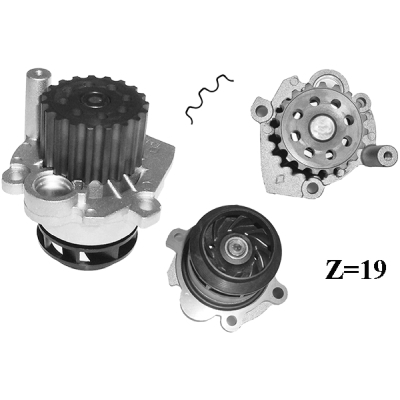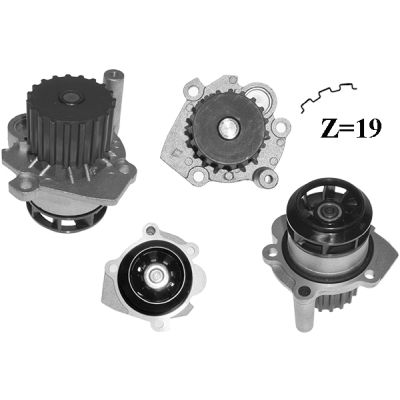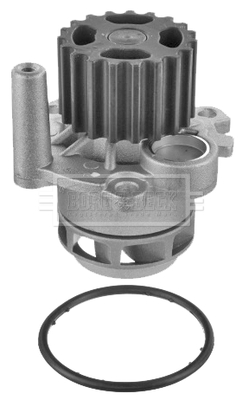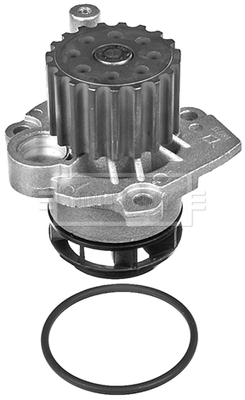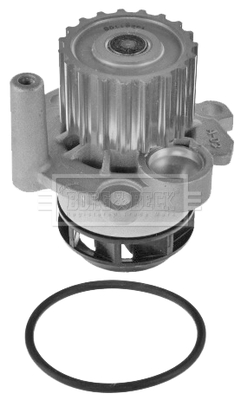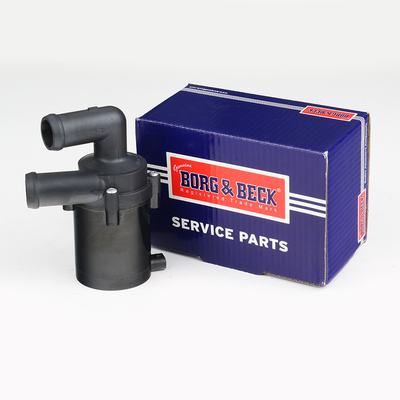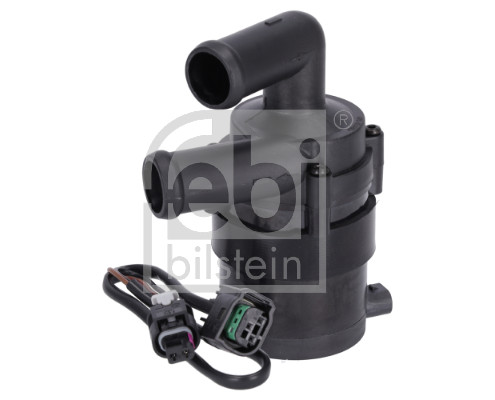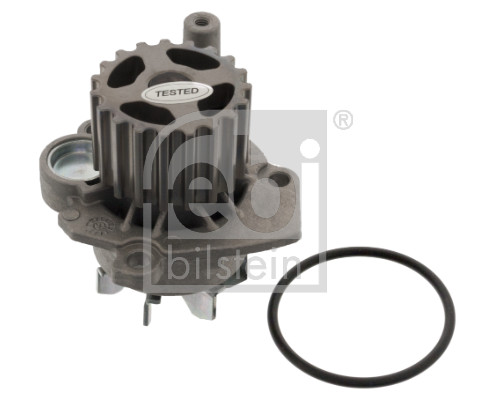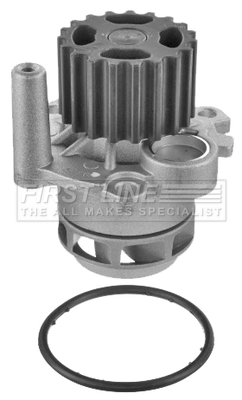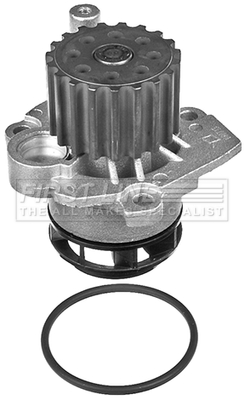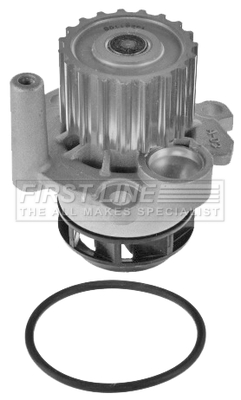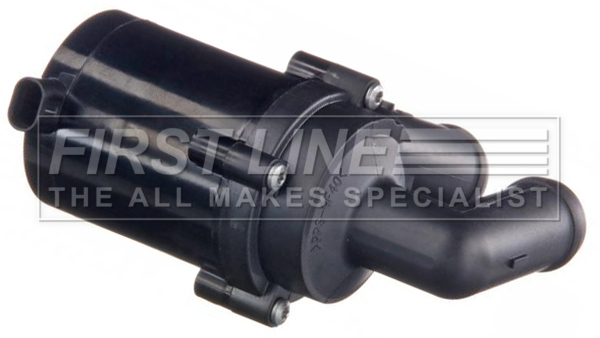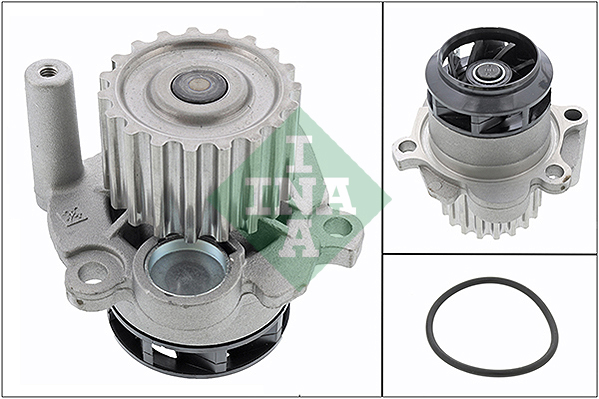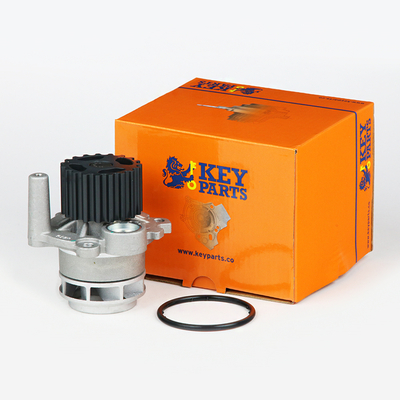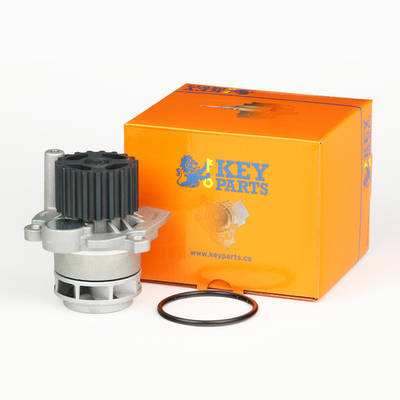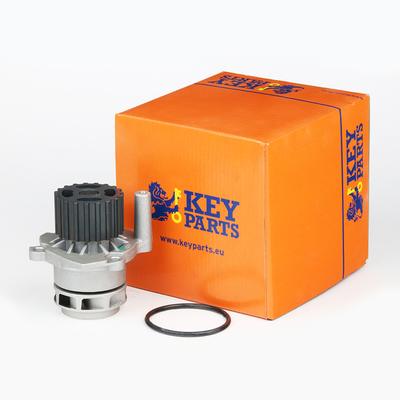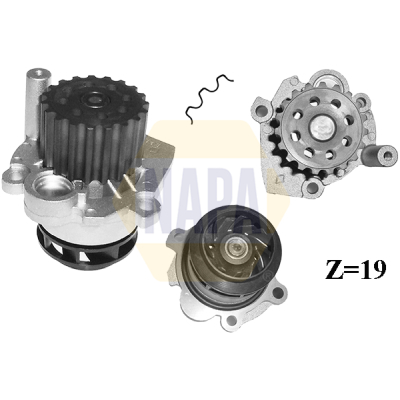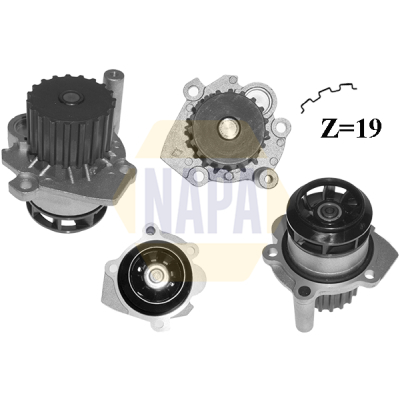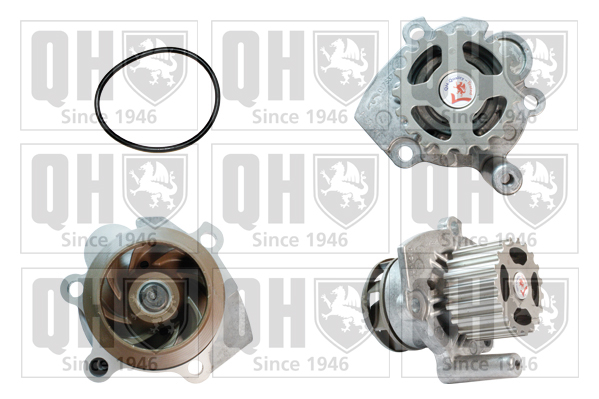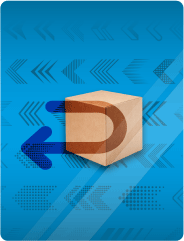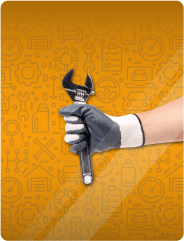Water Pumps 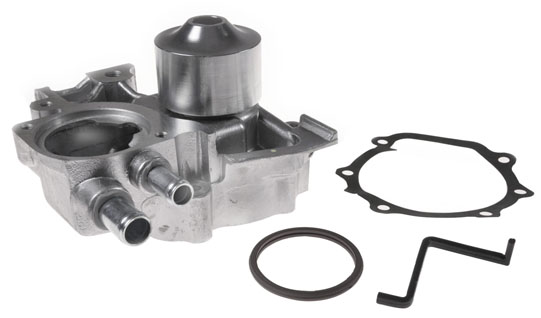
Fits AUDI A3 (8P1) 1.9 TDI
(2003)
Categories
Important compatibility info
| Number of Teeth | 19 |
| Type | Water Pump, engine cooling |
| Function | Water Pump, engine cooling |
| Pulleys | without belt pulley |
| for OE number | 045121011B |
| Manufacturer | AUDI FORD SEAT SKODA VOLKSWAGEN |
| Number of Wings | 8 |
| Water Pump Pulley Diameter | 56 mm |
Important compatibility info
| Number of Teeth | 19 |
| Pulleys | without belt pulley |
| Type | Water Pump, engine cooling |
| Function | Water Pump, engine cooling |
| for OE number | 045121011G |
| Manufacturer | SKODA VOLKSWAGEN |
| Model | FABIA POLO |
| Number of Wings | 8 |
| Water Pump Pulley Diameter | 62 mm |
Important compatibility info
| Additional Information | with gaskets/seals |
| Number of Teeth | 19 |
| Impeller Diameter | 63 mm |
| Function | Water Pump, engine cooling |
| Type | Water Pump, engine cooling |
Important compatibility info
| Function | Water Pump, engine cooling |
| Type | Water Pump, engine cooling |
Important compatibility info
| Additional Information | with gaskets/seals |
| Function | Water Pump, engine cooling |
| Type | Water Pump, engine cooling |
Important compatibility info
| Function | Auxiliary water pump (cooling water circuit) |
| Connector Shape | Oval |
| Type | Auxiliary water pump (cooling water circuit) |
| Voltage | 12 V |
| Port / Connector type | 2 PIN |
Important compatibility info
| Operating Mode | Electric |
| Voltage | 12 V |
| Function | Auxiliary water pump (cooling water circuit) |
| Number of Connectors / Ports | 2 |
| Additional Information 2 | with cable |
| Type | Auxiliary water pump (cooling water circuit) |
| for OE number | 7N0 965 561 B |
Additional Information
General Information
These products are designed to be used as originally intended and not modified for purpose. Please ensure the products are installed by a competent individual. N.B. products are usually supplied without fitting instructions.
Important compatibility info
| Width | 102.8 mm |
| Number of Teeth | 19 |
| Number of Wings | 7 |
| Function | Water Pump, engine cooling |
| Water pump impeller material | Metal |
| Seal Material | Rubber |
| Housing material | Cast Aluminium |
| Type | Water Pump, engine cooling |
| Additional Information 2 | with seal ring |
| for OE number | 045 121 011 H |
Additional Information
General Information
These products are designed to be used as originally intended and not modified for purpose. Please ensure the products are installed by a competent individual. N.B. products are usually supplied without fitting instructions.
Important compatibility info
| Number of Teeth | 19 |
| Additional Information | with gaskets/seals |
| Impeller Diameter | 63 mm |
| Function | Water Pump, engine cooling |
| Type | Water Pump, engine cooling |
Important compatibility info
| Function | Water Pump, engine cooling |
| Type | Water Pump, engine cooling |
Important compatibility info
| Additional Information | with gaskets/seals |
| Function | Water Pump, engine cooling |
| Type | Water Pump, engine cooling |
Important compatibility info
| Connector Shape | Oval |
| Function | Auxiliary water pump (cooling water circuit) |
| Type | Auxiliary water pump (cooling water circuit) |
| Voltage | 12 V |
| Port / Connector type | 2 PIN |
Important compatibility info
| Function | Water Pump, engine cooling |
| Number of Teeth | 19 |
| Water Pump Type | for timing belt drive |
| Type | Water Pump, engine cooling |
Important compatibility info
| Function | Water Pump, engine cooling |
| Impeller Diameter | 63 mm |
| Number of Teeth | 19 |
| Additional Information | with gaskets/seals |
| Type | Water Pump, engine cooling |
Important compatibility info
| Function | Water Pump, engine cooling |
| Type | Water Pump, engine cooling |
Important compatibility info
| Function | Water Pump, engine cooling |
| Additional Information | with gaskets/seals |
| Type | Water Pump, engine cooling |
Important compatibility info
| Function | Water Pump, engine cooling |
| Type | Water Pump, engine cooling |
| Pulleys | without belt pulley |
| Number of Teeth | 19 |
| for OE number | 045121011B |
| Number of Wings | 8 |
| Water Pump Pulley Diameter | 57 mm |
Important compatibility info
| Function | Water Pump, engine cooling |
| Type | Water Pump, engine cooling |
| Pulleys | without belt pulley |
| Number of Teeth | 19 |
| for OE number | 045121011G |
| Number of Wings | 8 |
| Water Pump Pulley Diameter | 63 mm |
Important compatibility info
| Water Pump Type | for timing belt drive |
| Function | Water Pump, engine cooling |
| Type | Water Pump, engine cooling |
| Water pump impeller material | Metal |
What is a water pump?
A water pump, also known as a coolant pump is a device on your engine that forces the circulation of water (coolant) around your engine. The engines internal combustion process generates a lot of heat and as such the engine needs to be cooled down so as to prevent damage from overheating. A fully functioning water pump is essential to the general running of the engine.
There are 2 main types of water pump. These are:
Mechanical water pump
Electric water pump
What comes with a water pump?
Water pumps are sold with different parts depending on the original design and what the aftermarket makers decide to include. We would always recommend that you check the image of the part and the parts notes to see what is included.
These can be items such as:
Water pump gasket
Sensors or switches
Flanges or pump backing plates or enclosures
How do I choose the correct water pump?
Comparing replacement parts against the original part number is one of the best ways to find the correct water pump. If you see more than one pump listed by the same brand there is likely compatibility notes that you need to observe. These can be factors such as:
Engine code
Manual or automatic transmission
Vehicle manufacture date (this is not the date the vehicle was registered but the date it was made
Engine number sequence (up to or after as specific number/letter
VIN (chassis number) sequence (up to or after as specific number/letter
Sometimes there is a switchable or non-switchable water pump that matches the same OE part number. In these situations both the switchable and non-switchable water pump will be compatible with your vehicle. The mounting for the switch/sensor will likely be blanked off however the switch / sensor should still be fitted in the same position. This is general advice and we would refer you to the technical documentation of the part in all instances.
What brand of water pump should I choose?
All aftermarket brands are designed to meet or exceed the original specification however there are different price points and warranty offerings which may make the choice tricky.. Quite often the brand that has a longer warranty period would be regarded as a higher quality part. You can either choose a brand you are happy with or choose a brand within your budget with the longest warranty period available.
How can I tell my water pump needs replacing?
Replacing a water pump as soon as it is found to be faulty is very important. If the water pump suffers a complete failure while driving it would more than likely put a stop to your journey. Were you to continue there could be irreparable damaged caused to your engine.
Here are some symptoms of a faulty water pump:
Overheating engine
Steam escaping from under the bonnet
Leaking coolant
Loud whining noise from the engine
 Proud to be a UK-based company
Proud to be a UK-based company Contact us
Contact us